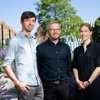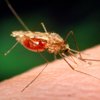-

How the Nobel discovery is used in drug development
Regulatory T cells keep the immune system in check, a discovery now awarded the 2025 Nobel Prize in Physiology or Medicine. Qiang Pan Hammarström explains how this finding is being applied in today’s drug development, and what challenges remain.
-

Topp tio dyraste läkemedlen på svenska apotek
En spruta för över en miljon kronor är det dyraste läkemedlet som går att få tag på inom läkemedelsförmånen på svenska apotek. Life Science Sweden har sammanställt listan över de subventionerade läkemedel inom öppenvården med allra högst prislapp per förpackning.
-

”Läkemedelstillverkare måste tänka om kring cybersäkerhet”
Läkemedelsföretagen har blivit en allt vanligare måltavla för cyberattacker, inte minst från statsstödda grupper. Därför behöver branschen fokusera om för att minska sin sårbarhet, skriver Hexagons Jeppe Bank i en debattartikel.
-

Virology professor on the threat from X: ”The next pandemic could be worse“
The question is not if, but when we will be affected by a new unknown virus that causes yet another pandemic. Are we sufficiently prepared? "Absolutely not!", responds virologist Niklas Arnberg.
-

Ukraine war fuels rise of totally resistent bacteria
War-torn Ukraine is not just suffering from hostile attacks from a foreign aggressor, but also from the threat of a totally resistant and contagious bacteria.
-

Kriget i Ukraina ger bränsle åt totalt resistenta bakterier
Krigshärjade Ukraina lider inte bara av fientliga attacker från en utländsk angripare, utan också från hotet från en totalt resistent och smittsam bakterie.
-

New cell therapy raises hope for curing type 1 diabetes – "Never succeeded before"
For the first time, a patient with type 1 diabetes has undergone an islet transplantation using genetically modified insulin-producing cells that do not require immunosuppressive drugs. "A major immunological breakthrough," says Professor Per-Ola Carlsson, who leads the clinical study, to Life Science Sweden.
-

MSD discontinues development of cancer drugs after trial failures
MSD suspends Phase 3 trials for two drug programs for different forms of cancer after trial failures.
-

Alligator säljer antikroppar och fokuserar på huvudprojekt
Alligator Bioscience överlåter två bispecifika antikroppar till samarbetspartnern Orion Corporation.
-

Förstärkta CAR-T-celler mot cancer testas kliniskt i Uppsala
I Uppsala testas just nu en läkemedelskandidat, en förstärkt CAR-T-cellterapi, för patienter med svårbehandlad lymfom. Kliniska prövningar är påbörjade och den första patienten har redan fått behandlingen.
-

Elypta ska växa med hjälp av europeisk accelerator
Det svenska diagnostikbolaget Elypta, som utvecklar metoder för tidig upptäckt av cancer, har antagits som medlem i det europeiska acceleratorprogrammet EIC Scaling Club.
-

From lab to patient – the art of developing new antibody therapies
For 25 years, Danish company Genmab has been developing antibodies and has managed to get several drugs all the way to the patient. Esther Breij has been along for much of the journey and has experienced setbacks, but also huge discoveries. “It’s amazing when you succeed,” she says.
-

Ancient DNA provides new insights – “The immune system lost its job”
Ancient bone remains from our ancestors have provided new insights into the prevalence of multiple sclerosis. By looking back in time, researchers can provide a possible explanation for why the disease is more prevalent in northern Europe.
-

Beta-blockers are often given unnecessarily, a study finds – “This will affect future practice”
Patients who have suffered a minor heart attack do not benefit from beta-blockers, according to a major new study that may change guidelines for cardiac care.
-

Venom from the deathstalker carries radiopharmaceuticals to the brain
In order to target cancerous brain tumours with radionuclides, the problematic blood-brain barrier must first be crossed. Life Science Sweden has visited a KI researcher who is trialling an unusual approach ‒ using scorpion venom.
-

TLV:s system igång efter hackerattack – men data har förlorats
TLV börjar får ordning på sina it-system igen efter den allvarliga hackerattacken i slutet av januari. Men alla data går inte att återställa.
-

Decades of research destroyed at KI – a hacker attack cannot be ruled out!
Years of research, together with half a billion Swedish krona, went up in smoke when the freezers at Karolinska Institutet overheated. The breakdown has now been reported to the police.
-

Hackerattack tvingar Region Uppsala övergå till reservsystem
En hackerattack i helgen har slagit hårt mot Region Uppsala, som tvingats gå upp i stabsläge.
-

Anna Törner: The clinical trial – Periscope to reality
What happens to the patients in the clinical trial is not very interesting, writes Anna Törner in a column.
-

Alligators cancerkandidat klassas som särläkemedel av EMA
Alligator Bioscience har beviljats särläkemedelsstatus i EU för sin huvudkandidat mitazalimab för behandling av bukspottkörtelcancer.
-

Alligators huvudkandidat får särläkemedelsstatus – ”En milstolpe”
Alligator Bioscience har beviljats särläkemedelsstatus i USA för sin huvudkandidat mitazalimab.
-

A new malaria vaccine offers hope but much more research is still needed
There has long been no vaccine against malaria, but there have been breakthroughs in recent years. However, it is still unclear how we become immune to the malaria parasite, and this is a vital piece of the puzzle for creating effective vaccines, says malaria researcher Kristina Persson.
-

Nytt KI-centrum ska lösa gåtan kring världens värsta huvudvärk
Karolinska institutet startar vad som uppges vara världens första forskningscentrum för klusterhuvudvärk, som är den mest smärtsamma huvudvärk som finns.
-

"Are we doing business the wrong way around in the Life Science Sector?"
For the past 50 years we have created solutions for problems that we thought would solve the problems. Pharmaceuticals have created big block buster drugs which were great for that time but now we realise that these drugs were in fact only tested in white men and certainly not for patients who are older who are taking a number of medications.
Få tillgång till allt innehåll på Life Science Sweden
Ingen bindningstid eller kortinformation krävs
Redan prenumerant? Logga in
Gäller endast personlig prenumeration.
Kontakta oss för en företagslösning.